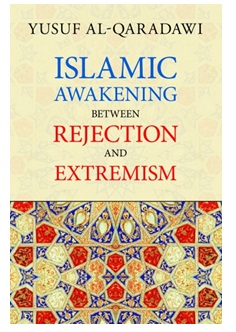Letters to the Editor
Q: Islamic magazines particularly your YMD and ‘Islamic Voice’ are very much liked by Muslim youth… Recently I had the opportunity to go through YMD. I found the articles not only informative but also relevant to the awakening of the Ummah. Accept my congratulations and good wishes for this commendable work.Islamic studies is not my field, I am only a humble student of Islam. I have always tried to keep myself away from the sectarian influences and accept the truth from wherever I can find it. I am writing the following few lines with the hope that you will think over with open mind and correct me if I am wrong. I have tried to be brief as these lines are addressed to a person who, Alhamdulillah, is learned enough to understand what I mean.
Under the heading ‘Sujood’ in Q&A section [of one of YMD’s earlier issues], you have written that touching the forehead in front of a grave is not permissible in Islam. You have further written “this is an act of major Shirk.” In all humility, I think that this part of your answer is incorrect. To prostrate before a grave is not ‘Shirk,’ but only ‘haraam.’
YMD
We have not stated that to prostrate before graves is Shirk but rather, that it is an act of major shirk. But, while stating such a view, we indulged in some sort of compromise.
The crime is quite grave and the matter much more serious.
Q: Some Muslims do it out of ignorance and they need to be educated.
YMD
But in our Shari`ah, ignorance of fundamentals of Islam is not accepted as an excuse.
Q: To call this act as ‘major shirk’ is tantamount to labeling them as ‘mushrik’ and thereby throwing them out of the fold of Islam.
YMD
We neither admit people into Islam nor throw them out.
We state the rules. The decision, thereafter, is the people’s.
Q: We shouldn’t unnecessarily doubt the intentions of such Muslims because no Muslim can ever think of worshipping anyone besides Allah (swt).
YMD
 In such affairs intention is of no concern. If a man insults our Prophet, then, he cannot escape censor by saying – like the Danish cartoonists – that the intention is clean and healthy.
In such affairs intention is of no concern. If a man insults our Prophet, then, he cannot escape censor by saying – like the Danish cartoonists – that the intention is clean and healthy.
Q: ‘Sajdahta`zeemi’ was allowed in previous Shari`ahs but in our Shari`ah it is ‘haraam.’ Angels prostrated before Adam (asws) and the brothers of Prophet Yusuf (asws) prostrated before him and in both cases it was ‘Sajdahta`zeemi’ and not ‘Sajdah `ibadah.’ It is only the intention that makes the difference between the two.
YMD
In Islam, both kinds of Sajdah are disallowed: ‘Sajdahta`zeemi’ (prostration of reverence) as well as ‘Sajdah `ibadah’ (prostration of worship). Insistence on the former can change it to the latter kind.
 Prostration is Allah’s own right. If we defend the actions of the deviated people, we will deserve to hear (4: 109): “Here you are, arguing on their behalf in the life of this world. But who will argue on their behalf against Allah on the Day of Judgment, or who will be their warden?”
Prostration is Allah’s own right. If we defend the actions of the deviated people, we will deserve to hear (4: 109): “Here you are, arguing on their behalf in the life of this world. But who will argue on their behalf against Allah on the Day of Judgment, or who will be their warden?”
Q: Under the heading HOSTILITY the question about Shiekh Abdul Wahab (correct name is Muhummed bin Abdul Wahab), the founder of the Wahabi sect, you have advised to read his life.
YMD
It is wrong to say that Ibn Wahhab was the founder of a sect. He was a reformer who stood staunchly against Shirk and Bid`ah, and a return to the fundamentals of Islam.
Q: It should be remembered that he and his followers did the same type of things by labelling ignorant Muslims as ‘Mushriks.’
Sajad Ahmed,
On Email
YMD
It was due to the strong and relentless drive against shirk and bid`ah that today the Gulf is largely free of these two evils – while we in the sub-continent face the greatest threat ever of our survival as pure monotheists. Shirk is making inroads from several directions in a dauntingly unstoppable manner.
The “excesses” of your reference attributed to the movement in the latter part of your letter are, (though undefendable), are the hallmark of all human endeavors. A perfectly balanced way and execution was the share of the Prophet and the Salaf, not to be expected of latter-day Muslims.
As regards the opposition to his call, the historical truths that you have alluded to, and the present-day pathetic political situation you have commented upon, these statements are not being published because these are topic too hot for cool discussion.
A scholarly unbiased and objective study has not yet been undertaken anywhere in the world, in the absence of which the debate will only inflame passions without leading us anywhere but to bitterness.
We also need to free ourselves of the past and learn to rely entirely on the Qur’an, Sunnah and the understanding of the Salaf, without discarding our rich heritage of the later centuries, but refusing any compromise over issues of fundamental importance, without referring to this or that scholar or reformer.
In different words, we need not depend on scholars of the past for fundamental issues. Controversies surround many of them. We can, rather, directly refer to the Qur’an and Sunnah to reach our own conclusions.
Q: It’s been four years of my marriage. My husband works in Japan and, so far, I was living with my mother-in-law. My husband visits twice a year for fifteen days each time. I had been complaining to him right from the beginning about his long stay abroad, but he only made excuses. I suffered a lot in his absence because of my mother-in-law. But I tolerated for three years just for the sake of my husband’s happiness. But I couldn’t bear it anymore and now I am living with my mother since a year and a half.
YMD
Your living with your parents is perfectly legitimate. You are not bound by law to stay with the parents of your husband. Your husband is required to provide you an independent housing. He cannot provide you a mere room in his parents’ house if you disagree to it. If the husband fails to provide you with a suitable house, you have the right to live elsewhere. You can even take a house on rent and ask the husband to pay for it.
Of course, the above is following the law. But it is not always possible to follow the law. Compromises have to be made for convenience of all. So, the husband could ask you to live with his parents instead of in an independent house for the reasons that he cannot afford it. But, if his parents misbehave with you then your husband should either arrange for a separate housing for you, or you could move to your own parents (which you have done). The food, clothing and medicinal allowance still remain on the husband to fulfill.
Q: As far as I know it is not allowed in Islam that a husband stays away from his wife for a long period of time. Therefore, I made few conditions for my husband to fulfill after which I would return:
- To return forever, or
- To take me with him, or
- Allow me stay away from my in-laws.
He says he will follow the Shari`ah law as he cannot accept my conditions. So please let me know the Shari`ah law.
YMD
Your demands are legitimate. In fact, even if he returns, he cannot force you against your will to live with his parents.
Although, as stated above, if he returns but cannot afford a separate house, you might have to strike a compromise deal with him.
Q: Is Talaq permissible in such circumstances? If so, then I would rather get rid of him. But I want him to make the first move.
Abida R.,
On Email
YMD
Since you have already found a solution to your living problem by moving out to your parents, this should not be the reason for seeking separation.
As for your other conditions that either he move back or take you with him, none might be practicable for him, although you have the right to make such demands, and have the right of divorce if he cannot fulfill. You might suggest to him that a grand style living is not necessary and that you are ready to lead a simple life if he returns but cannot find a well-paid job.
If your husband is out there for your sake, that is, to provide you with a good quality life, then, your assurance that you are ready for a simpler life will encourage him to return.
The laws stated, you must realize that strict application of laws is not always advisable. Separation should not be resorted to so long as all alternatives have not been tried without results.
You say you want to get rid of the man. That is bit of a strong statement and unrealistic. You may get rid of one, but without assurance that the next would not be worthy of same sentiments.
Q: I am in frequent waswaas (doubts) regarding purity of my clothes, taps in bathrooms, and even buckets and mugs. I feel that some unclean water might have splashed into them.
What do you advise me I should do?
YMD
This is a kind of phobia from which some people suffer. We are told of a doctor who suffers from this. When his wife is away and he has to  manage his kitchen, he washes his dishes in a most thorough fashion, and after they are dry, repeats the operation in fear that an insect might have visited one of them. Then, when the time comes to use them, he washes them once or twice, in a thorough-going manner.
manage his kitchen, he washes his dishes in a most thorough fashion, and after they are dry, repeats the operation in fear that an insect might have visited one of them. Then, when the time comes to use them, he washes them once or twice, in a thorough-going manner.
Our Shari`ah has been designed to meet with the broad-band conditions of life in which both the elitist as well as the rustic are taken into account. In other words, an elitist finds that he can meet the Shari`ah requirement without giving up his ceremonious protocols, while the rustic feels that despite the realities that dictate his humble life, he can attain to piety of the highest order. Islam accommodates all.
This applies to the question of cleanliness too. To what extent should it be taken? Should we apply the standards of the upper-most class that can afford to stay without a speck of dust on them, or should we apply the standards of the humble who are covered in dust? The answer given to both is: try for the highest possible state of cleanliness, but what you can achieve with honest application, within the limitations imposed by the realities surrounding you, is just what the Shari`ah desires of you.
The following example from the Prophet (saws) will throw some light on what we are saying. Once the Prophet had stopped by a watering place. `Umar (ra) was in company. He asked a Bedu at the place: “O Shepherd! Have you recently seen a wild animal drink from this water.” But before the Bedu could answer, the Prophet spoke out: “O Bedu! There is no need to tell us about it. The animal had its share and we shall have ours.”
What he meant was that we need not be so meticulous and discreet that render us unable to perform our affairs. Desert is not a place where you find water. You are lucky if you have found one. But if you are meticulous, you will have to stay thirsty. So, make compromise with the situation. Here is a watering place but it might have been visited by the beasts about whom it is commonly known that they begin to urinate while they dip their mouths in water. But, if you are fastidious, which you cannot afford in view of the need, then you risk your lives. So, let us not know about the past history of the water-pool. It will only cause unpleasantness.
It was a highly rational rejoinder and we are grateful to our Prophet, on whom be peace, for his guidance.
In accordance with this spirit, the fuqahaa’ have ruled that if a man passes by a little pool which dirties his clothes, he need not inquire whether it is dirty water or clean, nor need he be told by those around as to what it is. It maybe assumed that the liquid is clean.
If we understand the rule (that if we make an honest attempt, then what best we can achieve is what Islam requires of us), then the question of the extent to which we should go in maintaining cleanliness becomes easy to understand.
 The Prophet has also warned us about going to extremes to try and appease the Shari`ahor get full approval. He said that “Islam will overcome, but it will not be overcome.”
The Prophet has also warned us about going to extremes to try and appease the Shari`ahor get full approval. He said that “Islam will overcome, but it will not be overcome.”
Shozeph Shah,
On Email
Q: I am using a medicine to be applied topically on scalp for hair loss. But it contains absolute alcohol. Should I give it up?
Tashbihul Azhar,
On Email
YMD
Alcohol, although prohibited to drink, and although nasty to smell, is no more than a chemical solution, and hence, is not Najis (unclean).
But it might be added that if it reaches the brain and anytime you feel intoxicated, you may immediately wash your head!
Q: I want to know what are the rights of a wife on her husband’s income/money? And what does Islam say about savings for the future?
Nida A.,
On Email
YMD
 A wife’s rights on her husband’s wealth are many. Islamic law makes a husband completely and totally responsible for the maintenance of his wife’s expenses. This includes food, housing, medicine and excursion. The quality and standard has to be that of the wife. That is, the quality she was used to before marriage.
A wife’s rights on her husband’s wealth are many. Islamic law makes a husband completely and totally responsible for the maintenance of his wife’s expenses. This includes food, housing, medicine and excursion. The quality and standard has to be that of the wife. That is, the quality she was used to before marriage.
To explain, if she is from a rich family, the husband should offer her the same quality of life, even if he happens to be poor. On the other hand, if she comes from a poor family, then she cannot demand that the husband maintain her in accordance with his own rich standards, if he happens to be rich.
The above is regardless of wife’s own personal economic condition. The husband, (or his children), have no rights whatsoever on the income or wealth of his wife, whether inherited or earned. He is responsible for her maintenance in all circumstances whether she is rich or poor, whether she earns or not.
If the husband is unable to support his wife, she has the right to borrow on his behalf for her expenses, which the husband is liable to pay back whenever fortune smiles on him. Accordingly, a poor husband can receive Sadaqaat even if he has a rich wife.
Indeed, a man can receive Sadaqaat from his wife, if she is rich and he poor: which seems to be happening around us in a few visible cases.
Q: How can we get to know about our queries through istikharah in dreams?
YMD
The response to Istikhara does not appear in dreams but rather, one feels comfortable at heart with one of the several options available, as the most suitable one.
Q: Are there hadith collections that explain interpretation of dreams?
YMD
No, this topic is not dealt with in the hadith literature. Hadith literature deals with real life and not dreams.
It is noteworthy that although the Prophet himself interpreted dreams that he experienced or his Companions experienced, he did not teach the discipline to anyone of them.
On the other hand, and probably realizing that correct interpretations involved an element of risk, the Companions, too, did not ask him to instruct them, nor was there anyone among them who was known to interpret dreams.
Q: Firstly, I would like to thank you for providing knowledge to both my Muslim brothers as well as non-Muslims around the globe. I have following questions. Could you please give some explanation about the Qur’an mentioning about the hardening of hearts of the unbelievers. Please explain whose hearts are hardened and why?
YMD
 Hearts of the newborn are clean and pure. At maturity, the individual makes decisions about how he shall preserve its purity. If he does what he knows is wrong, the act leaves its signature on his heart. If he does something good, the mark is removed.
Hearts of the newborn are clean and pure. At maturity, the individual makes decisions about how he shall preserve its purity. If he does what he knows is wrong, the act leaves its signature on his heart. If he does something good, the mark is removed.
If, instead, he adds another evil deed to his record, a second mark is placed on the heart. When that happens over a period, the heart turns black and hard. Allah (swt) said about such hearts (83: 14):“Rather, their hearts have been stained by what they were earning.” He said about the Jews (61: 5):“When they deviated, Allah (swt) deviated their hearts.”
When that happens, the person involved does not see any good and does not accept any guidance. When he demonstrates that several times over, Allah (swt) stops showing him guidance altogether.
Allah (swt) said, “Allah (swt) does not guide an unbelieving folk.” That is, Allah (swt) does not guide a people who saw the truth (in the past), but refused to acknowledge. So, Allah (swt) does not guide them any further.
Allah (swt) also said, “Surely, Allah (swt) does not guide the ungodly.” In fact, Allah (swt) does to them what they wish to do to themselves. That is, they wish to be misguided. So, Allah (swt) misguides them.
He said (2: 26), “He guides many thereby and misguides many.” Who are the people whom He misguides? The answer is given in the same verse, “He does not misguide but the corrupt and ungodly.” And who are the corrupt and the ungodly? The answer is in the next verse, “Those, who break Allah’s covenant, after its ratification, and sever (the kin relationship) that Allah (swt) has ordered that they be joined and do mischief in the land.”
The above, however, apply as much to Muslims as non-Muslims. When the Muslims behave with the Qur’anic guidance as non-Muslims do, that is, refuse to act despite knowing what Allah (swt) wants of them, Allah (swt) hardens their hearts also. Thus, they disqualify themselves from receiving further guidance.
Q: Can your magazine spare some space for your readers to post their articles and essays to be published through you?
YMD
You can send the articles to us for review. They should be typed, on one side of the paper, and in double line spacing.

